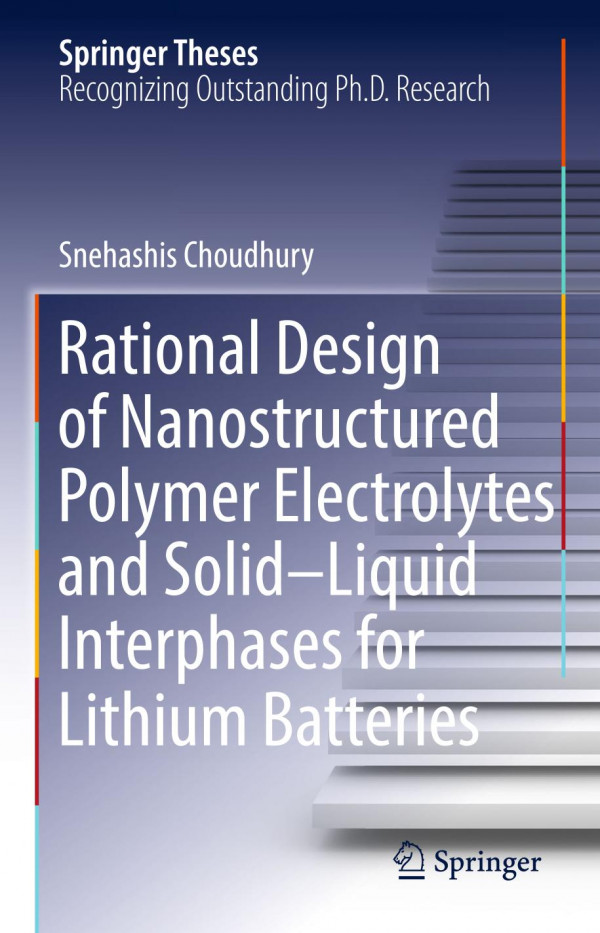

Most ebook files are in PDF format, so you can easily read them using various software such as Foxit Reader or directly on the Google Chrome browser.
Some ebook files are released by publishers in other formats such as .awz, .mobi, .epub, .fb2, etc. You may need to install specific software to read these formats on mobile/PC, such as Calibre.
Please read the tutorial at this link. https://ebooknice.com/page/post?id=faq
We offer FREE conversion to the popular formats you request; however, this may take some time. Therefore, right after payment, please email us, and we will try to provide the service as quickly as possible.
For some exceptional file formats or broken links (if any), please refrain from opening any disputes. Instead, email us first, and we will try to assist within a maximum of 6 hours.
EbookNice Team

Status:
Available4.7
34 reviewsThis thesis makes significant advances in the design of electrolytes and interfaces in electrochemical cells that utilize reactive metals as anodes. Such cells are of contemporary interest because they offer substantially higher charge storage capacity than state-of-the-art lithium-ion battery technology. Batteries based on metallic anodes are currently considered impractical and unsafe because recharge of the anode causes physical and chemical instabilities that produce dendritic deposition of the metal leading to catastrophic failure via thermal runaway. This thesis utilizes a combination of chemical synthesis, physical & electrochemical analysis, and materials theory to investigate structure, ion transport properties, and electrochemical behaviors of hybrid electrolytes and interfacial phases designed to prevent such instabilities. In particular, it demonstrates that relatively low-modulus electrolytes composed of cross-linked networks of polymer-grafted nanoparticles stabilize electrodeposition of reactive metals by multiple processes, including screening electrode electrolyte interactions at electrochemical interfaces and by regulating ion transport in tortuous nanopores. This discovery is significant because it overturns a longstanding perception in the field of nanoparticle-polymer hybrid electrolytes that only solid electrolytes with mechanical modulus higher than that of the metal electrode are able to stabilize electrodeposition of reactive metals.